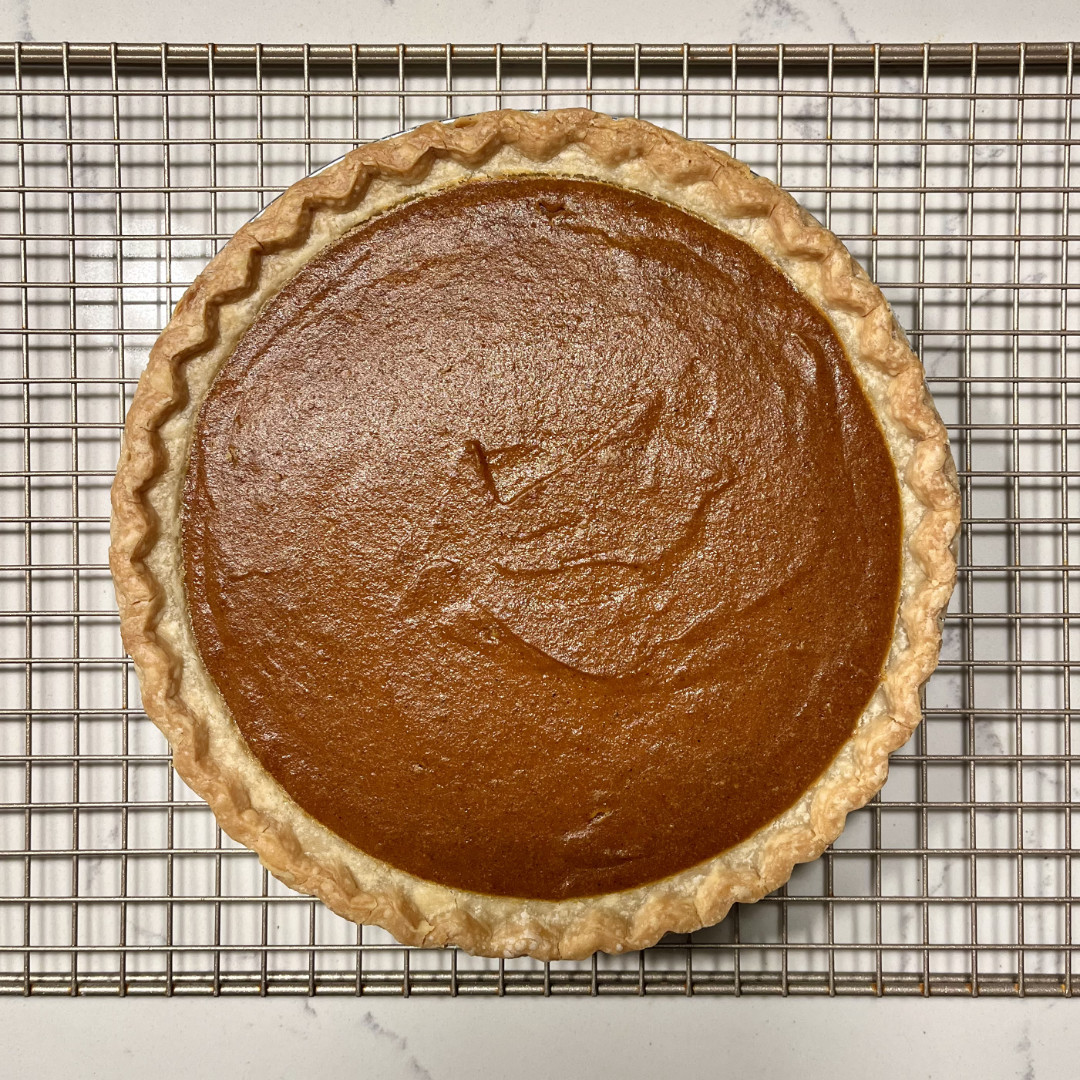Pumpkin Lovers’ Pie
Requires about 50 minutes prep time, 1.5 hours cook time, total. Yields one 9-inch pie.
Ingredients
- 1 pre-made pie crust, ready to bake
- 3 cups (24 oz) pumpkin puree
- 1/2 cup dark brown sugar
- 1/4 cup dark/robust maple syrup
- 1 tsp salt
- 1 tsp ground cinnamon
- 1/2 tsp ground ginger
- 1/2 tsp ground nutmeg
- 1/4 tsp ground allspice
- 1 tbsp amaretto (or 1 tsp vanilla extract)
- 1/2 cup heavy cream
- 1/3 cup sour cream
- 4 large eggs
Steps
- Prepare pie crust in a tin or pie pan. (If you are using a frozen pie crust, take it out of the freezer to thaw.)
- Combine pumpkin, sugar, maple syrup, salt, and spices in a wide saucepan. Cook down on medium-high heat for 15 minutes, stirring regularly and scraping to prevent sticking. (The mixture should become shiny, darker, and thickened.)
- Reduce heat to low and continue simmering for another 15 minutes, stirring occasionally. (The mixture should be reduced by at least a third.)
- Remove from heat and stir in amaretto, then let mixture cool for 15-20 minutes.
- Preheat oven to 400°F with a deep baking tray (such as a jelly roll pan) inside.
- While pumpkin mixture cools, whisk heavy cream and sour cream together in a large bowl until mostly smooth.
- Lightly whisk eggs into the cream until well combined.
- Add pumpkin mixture to cream and eggs, then whisk together until combined and smooth.
- Pour filling into crust. Place crust (in tin) on pan in oven, then add about a half-inch of hot water to pan around the pie tin.
- Bake at 400°F for 10 minutes.
- Reduce oven temperature to 300°F and continue baking for another 70 minutes. (Filling should start pulling away from the crust around the edges but not crack.)
- Turn off oven and open oven door partway to vent, but leave the pie in the oven for another 10 minutes.
- Remove pie from oven (and from water bath) and place on a cooling rack. Let cool completely before serving; after about an hour, you can finish cooling it in a refrigerator.

